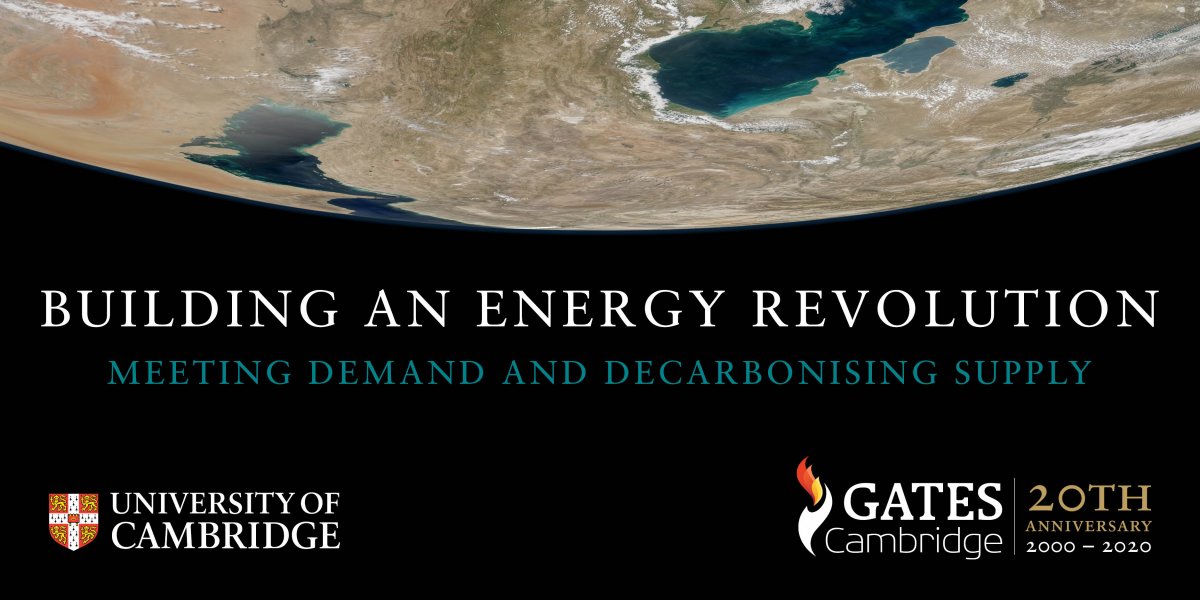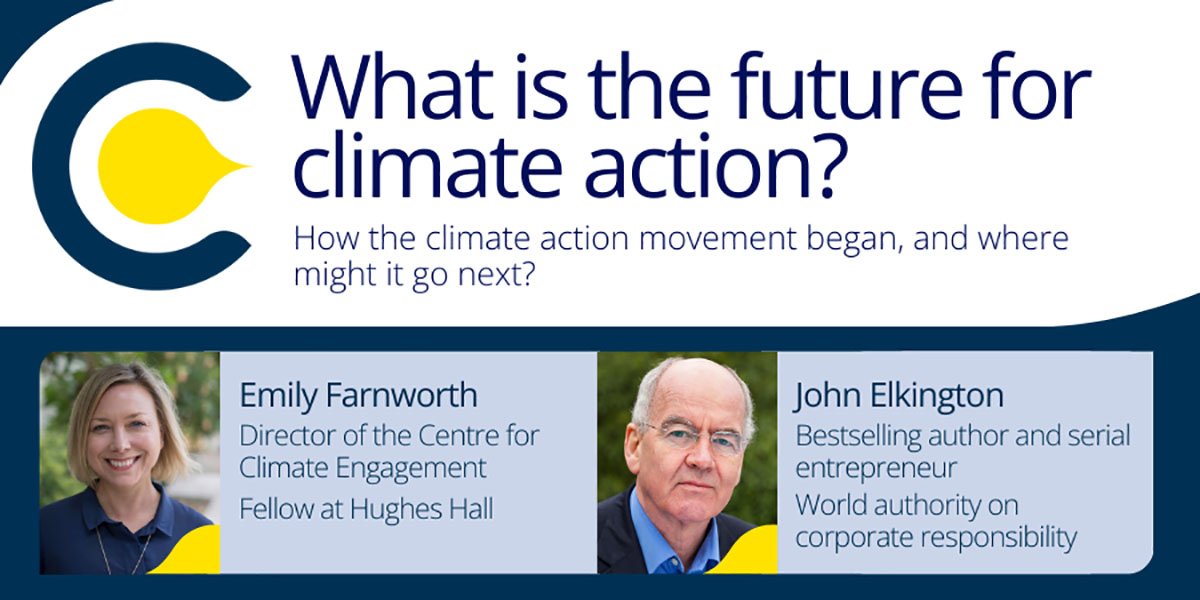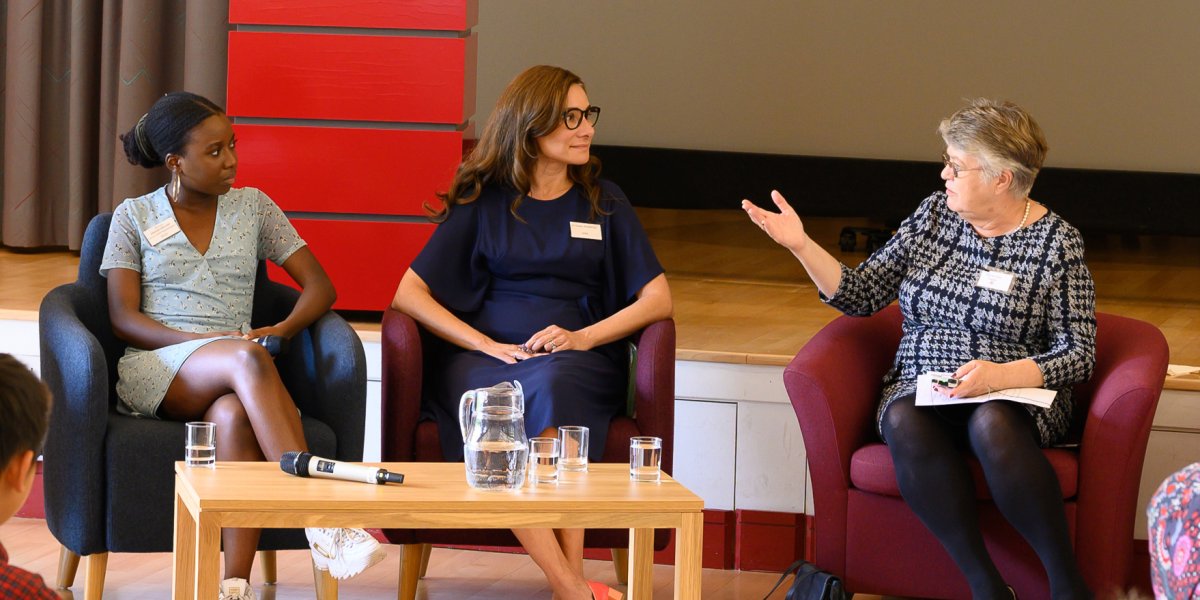Building an energy revolution: meeting demand and decarbonising supply
Building an energy revolution: meeting demand and decarbonising supply
Power generation and energy demands are among the most pressing issues in the climate emergency. How can the planet's energy needs be met while transitioning to alternative sources? What does the balance of existing and emerging technologies look like? And how do we reach a just transition?
Join the Vice-Chancellor, Professor Stephen J Toope, and a panel of speakers in a thought-provoking conversation on the present and future of energy transition.
Speakers
Professor Stephen J Toope (Trinity 1983)

Professor Stephen J Toope OC, LL.D. is 346th Vice-Chancellor of the University of Cambridge, the first non-UK national to hold the post. He was Director of the Munk School of Global Affairs at the University of Toronto, and President, the University of British Columbia. A former Dean of Law, McGill University, Toope was also Chair of the United Nations Working Group on Enforced and Involuntary Disappearances.
Professor Toope publishes in global journals on human rights, international dispute resolution, international environmental law, the use of force, and international legal theory, and has lectured at universities around the world.
His current book project with Professor Jutta Brunnée explores mechanisms and processes fostering stability and change in international law.
Ramit Debnath (Churchill 2018)

Ramit is a computational social scientist. His research focuses on energy and climate justice in the built environment using data science. He uses machine learning and AI to inform sustainability and policy decisions for climate repair. He has a background in electrical engineering and sustainable development. He is currently a Laudes Foundation Research Associate and a Gates Scholar at the Centre for Natural Material Innovation at Cambridge Architecture, and a member of the Energy Policy Research Group at Cambridge Judge Business School. Ramit is also a visiting scholar at the International Energy Agency (IEA)’s Energy Efficiency Division, working on the social dimension of digital networks. His work on integrating natural language processing and policymaking is currently informing net-zero and renewable integration dialogues for the COP26.
Sandile Mtetwa (Peterhouse 2018)

Sandile is a PhD student in Chemistry. Her research is on assessing the performance of charge-carrying porous metal-organic frameworks for photocatalytic hydrogen evolution. Sandile's interest lies in the use of green hydrogen as a clean energy carrier which has the promise to reduce the adverse effects of climate change. She is a NanoDTC Associate with her work aligning with the Energy Materials research area. She is also part of the team that received a grant by Isaac Newton Energy Transitions Grant which awards projects on energy transitions policy using an interdisplinary approach of the Physical Sciences and Arts, Social Science and Humanities.
Professor Alison Smith (Darwin 1977 and Fellow of Corpus Christi)

Alison Smith is Professor of Plant Biochemistry and Head of Department of Plant Sciences at the University of Cambridge.
Her research interests are focussed around the metabolism of plants, algae and bacteria, in particular of vitamins and cofactors. She has been instrumental in advocating the use of microalgae for sustainable solutions, including as production platforms for high value compounds, waste remediation and novel food ingredients.
Alison was a founding member of the Algal Biotechnology Consortium in 2007 and established the Algal Innovation Centre in Cambridge in 2016. This is a pilot-scale facility to allow testing of algal-based solutions under natural conditions. She is currently a Trustee of the Marine Biological Association (MBA) of the UK and a Director of NIAB.
Booking information
Booking for this event is now closed.


